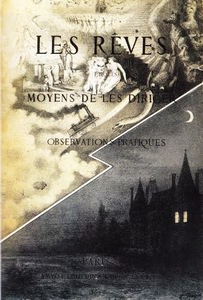Translating Dreams: The Western Origins of Lucid Dreams

Back in 1867, a Frenchman named Marquis d'Hervey de Saint-Denys published the first ever Western book on lucid dreaming.
He was also the first person to write the term "lucid dream" - even though Frederick van Eeden is ofen credited to this day.
Saint-Denys' historic book was written entirely in French. Les Rêves et les Moyens de les Diriger; Observations Pratiques translates as Dreams and the Ways to Direct Them: Practical Observations.
Never heard of it? That's because, in 147 years of scientific dream research, it has never received a full English translation.
Until now...
Translating Dreams
The expert lucid dreamer, Daniel Love, has made it his mission to see this book translated, properly and completely, into the English language. He needs to raise £18,000 on KickStarter to fund the process.
You can help - by donating anything from £1 to £5,000. Your donation can make this dream very real. So why get involved?
- Turbo charge your lucid dreams. According to Love, this profoundly important historial text contains fascinating lost insights and techniques that will enhance your own experience of lucid dreaming.
- Get insights from modern experts. The book will be accompanied by contributions from a number of today's foremost lucid dreaming experts. These include Dr Susan Blackmore, Dr Keith Hearne, Robert Waggoner, Tim Post, Ryan Hurd, Dr Rory Mac Sweeney, Dr Clare Johnson, Daniel Love and yours truly.
- Receive unique rewards for your donation. Depending on how much you pledge, you can receive any number of rewards from the paperback book, to artwork prints, to personal lucid dream tuition, to the original canvas cover art.
Final Thoughts
Take your place in the history of lucid dreaming: help fund this extraordinary project and translate the dreams of the first Western lucid dream researcher.
Saint-Denys created original philosophies and lucid dream techniques from his extensive research that could well catapault your own lucidity skills into a new league. I, for one, can't wait to explore them...
Pledge £20 before the June 29 deadline and get a copy of the book.

















